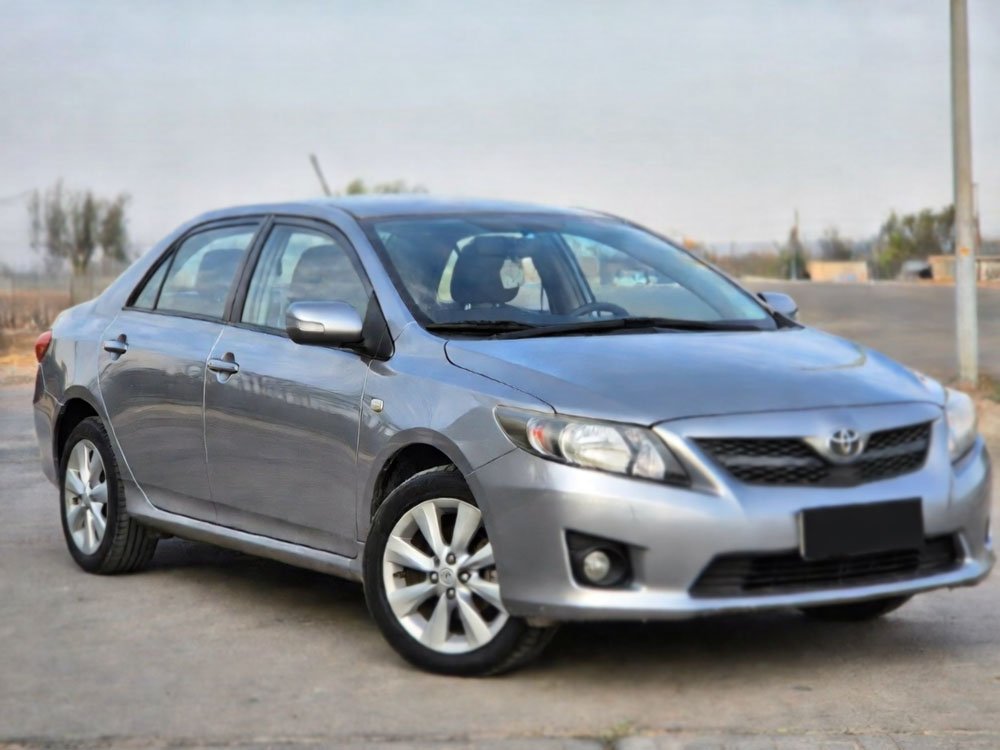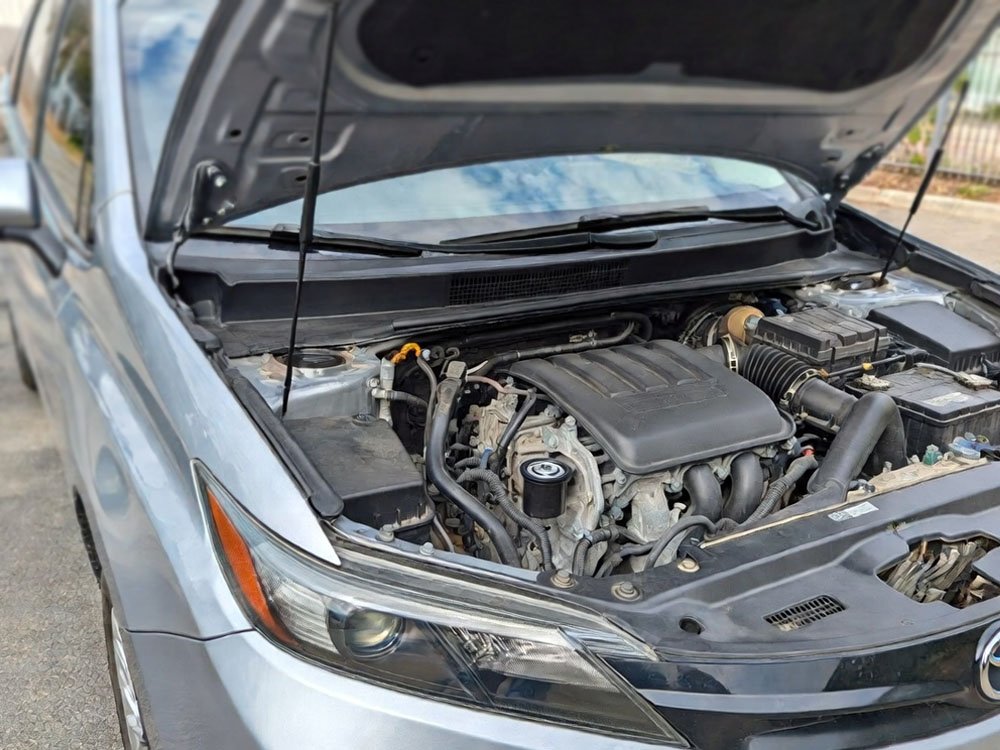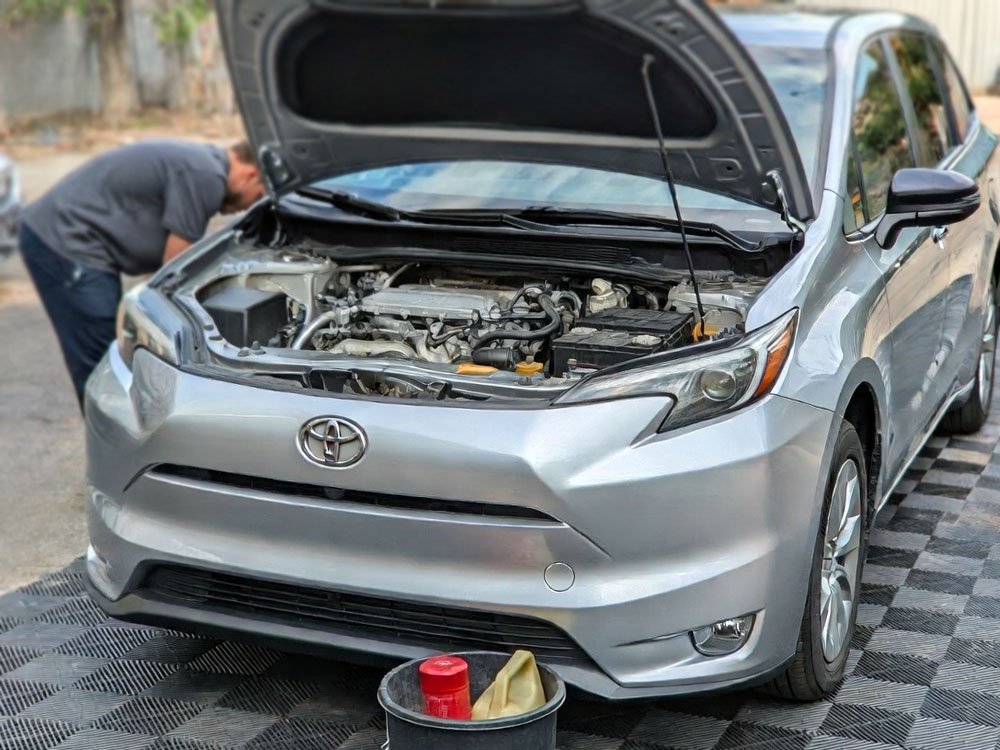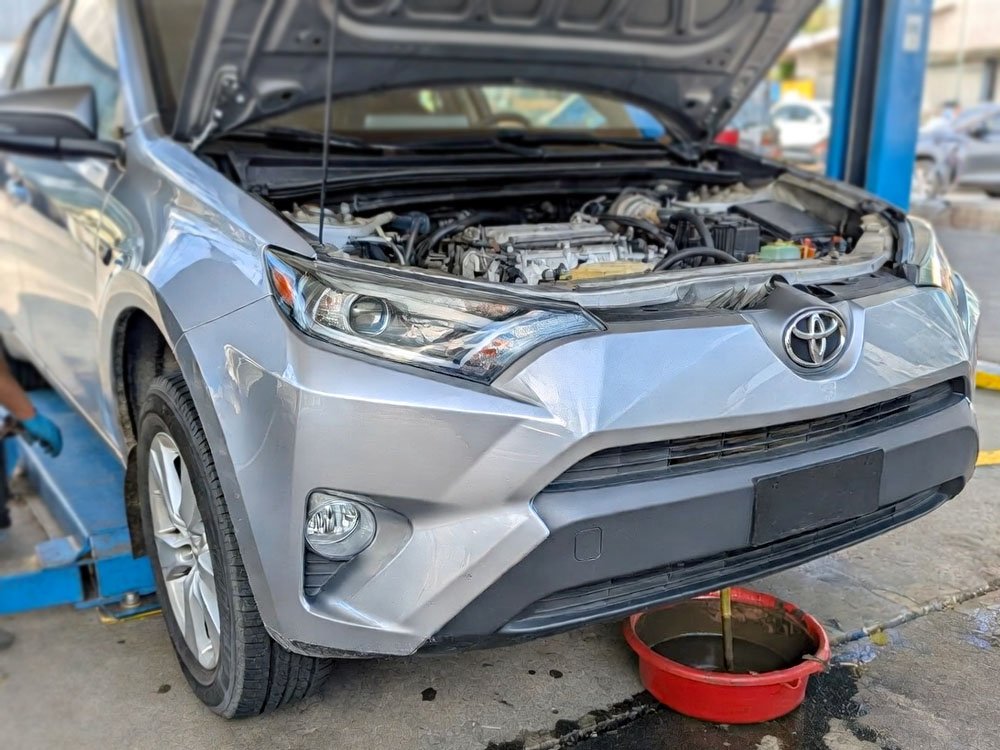As an Amazon Associate, I earn from qualifying purchases at no extra cost to you.
Why is My Car Blowing White Smoke But Not Overheating
If you’ve ever seen white smoke coming out of your car’s exhaust, you might have panicked and wondered what’s going wrong. You might even be relieved if your car isn’t overheating. But is it really something you should ignore, or could there be a hidden problem brewing under the hood? Don’t worry, you’re not alone in this – and today, we’re going to dive deep into what could be causing that mysterious white smoke and how to fix it. It may sound scary, but with the right information, you can figure it out easily.

What Causes White Smoke From the Exhaust?
Before we jump into solutions, let’s first understand why your car might be blowing out white smoke in the first place. White smoke is usually a sign that something is wrong inside your engine, but it doesn’t always mean that your car is about to break down. Here are some reasons why you might be seeing that smoke and what it could mean for your car.
Coolant Leaking Into the Engine
One of the most common reasons your car could be blowing white smoke is coolant leaking into the engine. This could happen if there’s a problem with your car’s head gasket, which seals the engine block and the cylinder head. When the head gasket fails, coolant can leak into the combustion chamber. When this happens, the coolant burns off during the engine’s normal operation, creating white smoke that comes out of the exhaust.
Condensation on Cold Days
Sometimes, white smoke is not something to be worried about at all. If you see white smoke only when you first start your car in cold weather, it's likely just condensation. When the engine is cold, water vapor builds up in the exhaust system. This water turns into steam and looks like white smoke when you start the car. It should disappear after a few minutes once the engine warms up, and there's no need to panic.
Worn Piston Rings or Valve Seals
Worn-out piston rings or valve seals can also cause white smoke. These parts help keep the oil and coolant from mixing in the engine. If they’re damaged, coolant can leak into the combustion chamber, and you'll see white smoke puffing from the exhaust. If the issue isn’t fixed soon, it can cause serious damage to the engine, so it’s essential to get it checked.
Faulty Cylinder Head
Another possible cause of white smoke is a cracked or warped cylinder head. The cylinder head is an important part of your engine, and if it cracks, coolant can leak into the cylinders. When this happens, it can result in white smoke coming out of the exhaust. This problem is usually more serious and might require replacing the cylinder head to stop the leaks.
How Do You Fix White Smoke Coming From Your Car?
Now that we understand why white smoke could be coming from your car, let’s talk about how to fix it. If you've spotted white smoke and you’re not sure how to proceed, here are some steps to follow based on the different causes we’ve discussed.
Fixing Coolant Leaks (Head Gasket Repair)
If the white smoke is due to a coolant leak, especially from a blown head gasket, it's important to act quickly. A blown head gasket can lead to engine overheating and long-term damage if not fixed soon.
- Check the Coolant Level: If you notice the coolant level dropping quickly, it’s a clear sign that coolant is leaking somewhere.
- Get the Head Gasket Checked: The only real way to confirm that the head gasket is blown is to have it inspected by a mechanic. They may perform a compression test or a leak-down test.
- Replace the Head Gasket: If the head gasket is the problem, it will need to be replaced. This is a labor-intensive job, and it's usually best to leave it to a professional. If not fixed properly, it could lead to more engine damage.
- Check for Engine Damage: After replacing the head gasket, it’s important to check for any further engine damage caused by the coolant leak, such as corrosion in the cylinders.
Dealing with Condensation on Cold Mornings
If the white smoke you’re seeing only appears when the car is first started on a cold morning, there’s nothing to worry about. It's just condensation evaporating and should stop once the engine warms up. But if you're unsure, let the car run for a few minutes and watch the smoke disappear.
Fixing Worn Piston Rings or Valve Seals
If the white smoke is caused by worn-out piston rings or valve seals, replacing these parts is the only solution. Here's what the repair involves:
- Piston Ring Replacement: This is a complex repair that involves disassembling much of the engine. If the piston rings are worn out, the oil and coolant will mix, and the white smoke will continue. A mechanic will need to remove the engine block and replace the piston rings.
- Valve Seal Replacement: Valve seals help prevent oil from leaking into the combustion chamber. If they’re worn out, oil can mix with the coolant and cause white smoke. This repair involves removing the cylinder head and replacing the seals.
Both of these repairs are labor-intensive, so expect to pay for both parts and labor. However, these fixes are crucial for the long-term health of your engine, so it’s important to address them promptly.
Repairing a Cracked or Warped Cylinder Head
A cracked or warped cylinder head can be more difficult to fix. The repair may include:
- Cylinder Head Inspection: The first step is to inspect the cylinder head for cracks or warping. A professional mechanic will use specialized equipment to check the condition of the cylinder head.
- Resurfacing or Replacement: If the cylinder head is warped, it might be resurfaced, which involves smoothing out the surface. However, if the head is cracked, it may need to be replaced entirely.
- Fixing the Leak: Once the cylinder head is either repaired or replaced, the coolant leak should stop, and the white smoke will no longer appear.
While a cylinder head repair can be costly, it's an important fix to prevent further damage to your engine.
When Should You Visit a Mechanic?
If you’re dealing with white smoke, it’s not always a simple fix you can handle on your own. Here are a few signs that it's time to visit a mechanic:
- You're seeing white smoke all the time, not just during cold starts.
- The white smoke doesn't disappear after a few minutes.
- Your coolant levels are dropping quickly.
- Your engine is misfiring or running rough.
- You notice a sweet smell from the exhaust (a sign of coolant burning).
If any of these issues sound familiar, it's time to book an appointment with your mechanic. Don't wait too long – the longer you drive with a problem like this, the more expensive the repairs can get.
I hope this article helped you better understand why your car might be blowing white smoke without overheating. Whether it's just a little condensation or something more serious like a blown head gasket, knowing what to look for can save you a lot of stress. Always keep an eye on your engine, and if in doubt, don't hesitate to consult a mechanic to keep your car in great shape!
Frequently Asked Questions
Is it safe to drive my car if it's blowing white smoke but not overheating?
It depends on the cause of the white smoke. If it’s just condensation, you’re fine. But if it’s a coolant leak, it's best to get your car checked to avoid further damage.
Can white smoke from the exhaust disappear by itself?
Yes, if it’s caused by condensation, it will disappear once the engine warms up. However, if it’s from a coolant leak or other serious issues, it won’t go away on its own.
Do I need to replace my engine if I see white smoke?
Not necessarily. White smoke can often be fixed by replacing parts like the head gasket or valve seals. An engine replacement is only necessary if there’s significant damage.
Is it okay to keep driving my car with white smoke?
If the smoke is from a coolant leak or a cracked cylinder head, it's not safe to keep driving. It's important to get it fixed to avoid further damage.
Can a blown head gasket cause white smoke?
Yes, a blown head gasket can cause white smoke because coolant leaks into the engine and burns off.
Do I need to check the coolant level if I see white smoke?
Yes, a low coolant level is a sign that coolant might be leaking into the engine. Check the coolant level and have the car inspected by a mechanic.
Can cold weather cause my car to blow white smoke?
Yes, white smoke during cold weather is usually just condensation evaporating, and it's completely normal.
Is it expensive to fix a car that's blowing white smoke?
The cost depends on the cause of the smoke. Minor issues like condensation don't cost anything to fix, but major problems like a blown head gasket or cracked cylinder head can be pricey.











